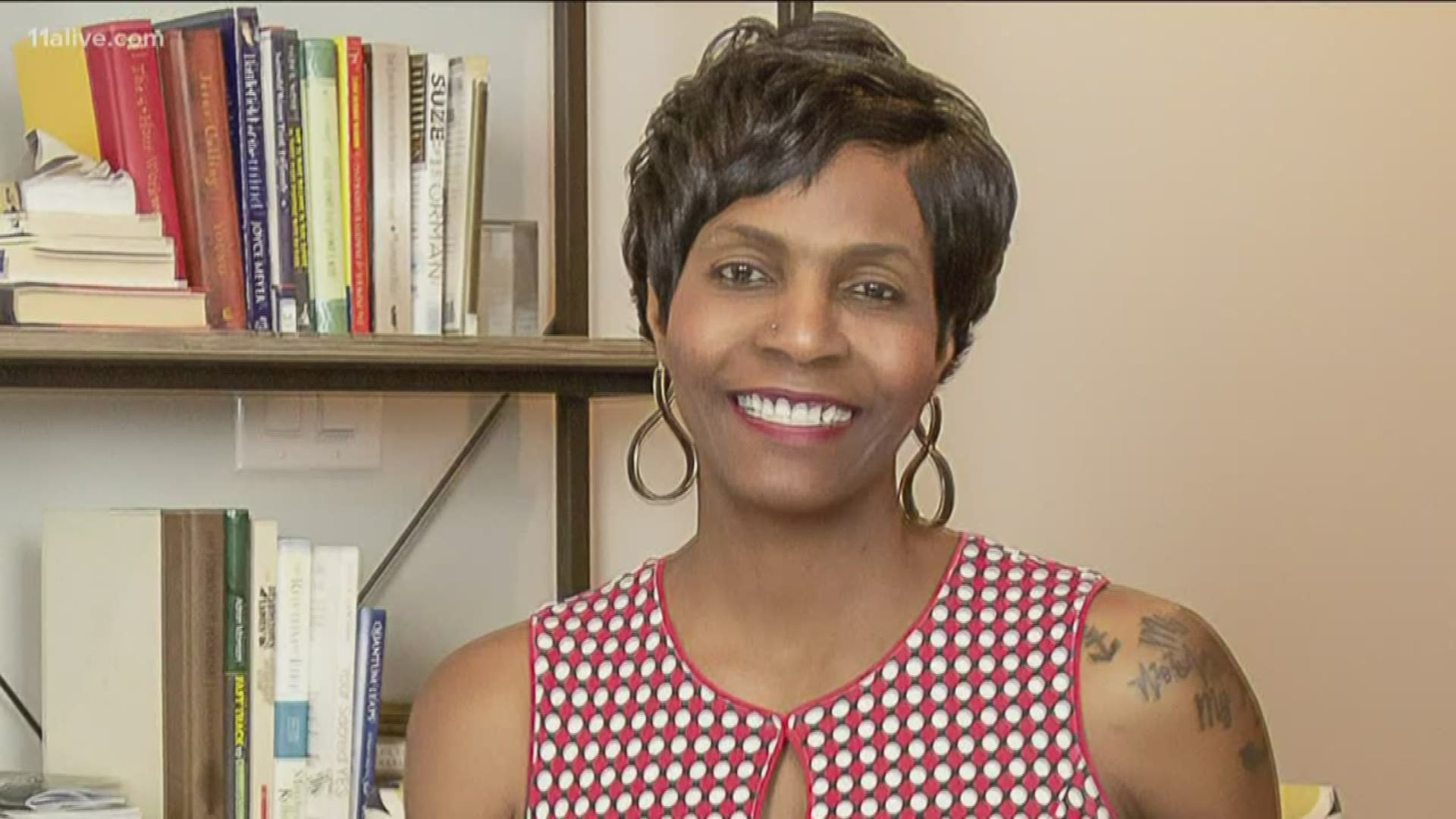ATLANTA — It’s 2018, and Tonya Oxendine moved to Atlanta not long before. After serving 30 years in the Army, the Command Sergeant Major in the 82nd Airborne Division had left the Pentagon and headed for a new life and new title: veteran and civilian.
Her kids were grown, she was in a new city with her beloved dog.
Oxendine struggled for years with PTSD, depression and anxiety, as well as injuries to her feet, ankles, and knees -- all a result of her time in the service.
“That last deployment to Afghanistan, I guess for me, just triggered and bought back so many things for me and I just couldn’t cope trying to do it by myself anymore,” she said.
Although she was used to being alone, the move to Atlanta would bring with it an exacerbation of her depression, and soon after, self-isolation.
She describes the feeling as being slowly pulled under by quicksand. She said her self-esteem dropped and she began to experience suicidal ideations.
“Months had gone by that I didn’t even realize months had gone by, even years, that I was just that depressed because of the isolation and the loneliness,” Oxendine explained.
“Isolation is a real thing for those that we serve on a daily basis, and now that the majority of the world is facing that as well,” said Dana Dreckman, Director of Wounded Warrior Project Talk.
Though Oxendine was being seen by physicians at Emory hospital and the VA, she needed more help. Already familiar with Wounded Warrior Project (WWP), a charity and veterans service organization, she was connected to WWP Talk.
WWP Talk is a telephone emotional support line helping warriors and family members deal with whatever struggles they may be facing through coaching sessions. Team members call veterans or ‘warriors’ on scheduled appointments for 20 minutes, to establish goals and coping mechanisms.
As it stands in the current world of a pandemic, Dreckman said they’re reaching out to more veterans and they’re also seeing more veterans seek them out.
“We have warriors that are going through some additional stress because they’re looking for a job or maybe they’ve just been laid off from a position. And we do have people that maybe needed a little bit more clinical care because we are a non-clinical facility,” Dreckman explained.
Working with warriors to make small steps towards bigger goals is a main focus of WWP Talk.
“There’s some warriors where it’s as simple as ‘hey, I don’t want to go outside today’ and working with them on a weekly basis to say, ‘hey, try today, open your blinds, look outside. Okay, now tomorrow, just go stand outside and the day after that go to the end of the driveway.’”
While it’s impossible to compare what veterans and service members go through when it comes to mental health struggles, there are now millions of people around the world facing isolation for the first time. And, many people who struggle with mental health who are isolating during the COVID-19 crisis.
Dreckman said a lot of what they help warriors with can be applied to the average person, facing financial insecurities, loneliness, and isolation.
“Just having that outlet, having that support system is important. Having a rhythm and a goal is so important in navigating whatever challenge you have in front of you.”
Dreckman said during moments of sadness or isolation it’s important to be present in the moment, find any positive thing, no matter how small, and focus on controlling only what you can control.
“We can’t control when this is going to end or how many people are impacted,” said Dreckman of the pandemic. “But there are things within our four walls that we can control. Go outside, and even if you’re in a place that’s snowy and cold, find the beauty in that.”
Dreckman added social distancing is only physically distancing, so increasing social connection, through apps, FaceTime, texts, calls, emails and even letters. Basically, find a support system.
Oxendine said AMEN to support systems. She credits WWP Talk, her sons, physicians at Emory and the VA as her fresh breath of air. She suggests that people make “dates” with friends or trusted confidants for once a week, just to have something coming up.
“You look forward to that 2 o’clock call or that 1 o’clock call or whatever the time may be,” she explained.
Not every day is great, Oxendine admitted. But she can say she knows the next day has the potential to be that much better.
“You really just gotta hold on the next day and that, that day can be better than the last day. There’s a small glimmer of light that we hold onto, that things will and they have to get better.”
Oxendine started her own podcast to talk about her journey. And she knows now, no matter what happens, she isn’t alone and can always find someone to help is she wants.
“Reach out, ask for help. It’s not a sign of weakness. It’s a sign of strength.”
For more information on WWP Talk , visit https://www.woundedwarriorproject.org/programs/wwp-talk or call the Resource Center at 904-405-1213 from 9am-9pm EST, Monday-Friday.
MORE HEADLINES |

